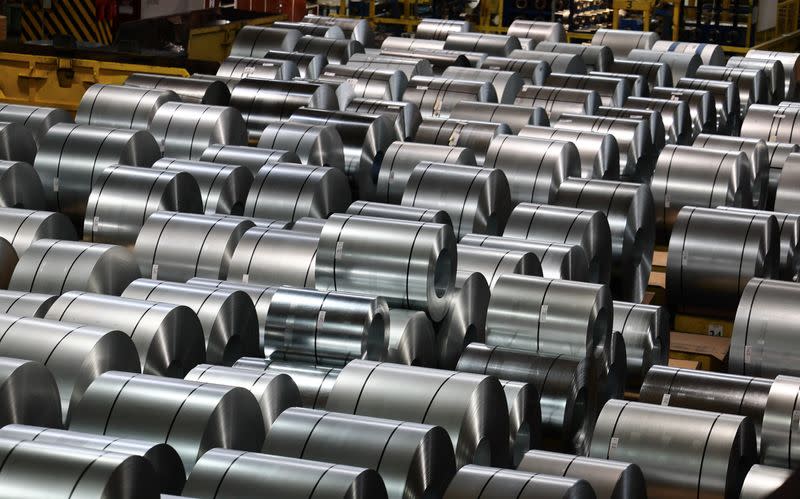German budget hole puts industry at risk, steel sector warns

By Christoph Steitz
FRANKFURT (Reuters) -Germany's steel sector rang the alarm bell on the country's industrial transformation on Thursday, warning a court ruling that tore a hole in Berlin's budget had put a question mark over more than 40 billion euros ($44 billion) in planned investments.
Bernhard Osburg, president of the German steel association and CEO of Thyssenkrupp's steel division, the country's top steelmaker, told reporters that it was vital for Germany to protect its future competitiveness.
"Politicians must find answers really quickly due to the big loss of confidence in the industry, but above all also in other countries among suppliers and potential partners in the value chain, as to how this transformation can be reliably financed."
His comments highlight major uncertainty within Germany's industrial firms, which are already struggling with local economic conditions and are increasingly looking to alternative, more favourable, markets, such as the United States.
Osburg said the landmark ruling, which has thrown Germany's government into crisis, meant that money Berlin has pledged to help transform industry towards decarbonisation, a key aspect of Chancellor Olaf Scholz's political agenda, was no longer there and that it would be tough to plug the hole.
Many companies had started decarbonisation projects in good faith that funding from Berlin's budget would eventually arrive, creating major uncertainty for firms and their suppliers over the economic viability of projects.
"These are not feel-good projects but actually key measures in our country to preserve it as a location for industry, to preserve industry as such ... and, perhaps precisely because of this, to make sure climate targets are achieved not just in Germany," Osburg said.
So he called on Berlin to hold a summit soon with German industry leaders to provide answers on how these investments could be protected, warning of an "utmost pressure to act".
Germany's steel sector, which apart from Thyssenkrupp also includes Salzgitter, directly employs around 80,000, while around 4 million jobs indirectly depend on it. About two-thirds of all German exports are steel-based goods.
($1=0.9168 euros)
(Reporting by Christoph Steitz; Editing by Miranda Murray)

 Yahoo Finance
Yahoo Finance 